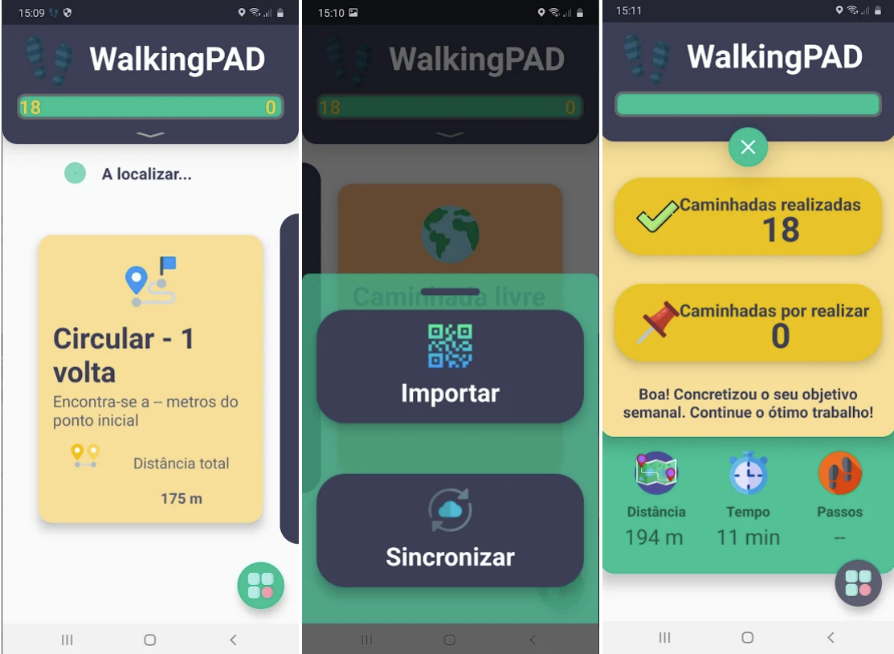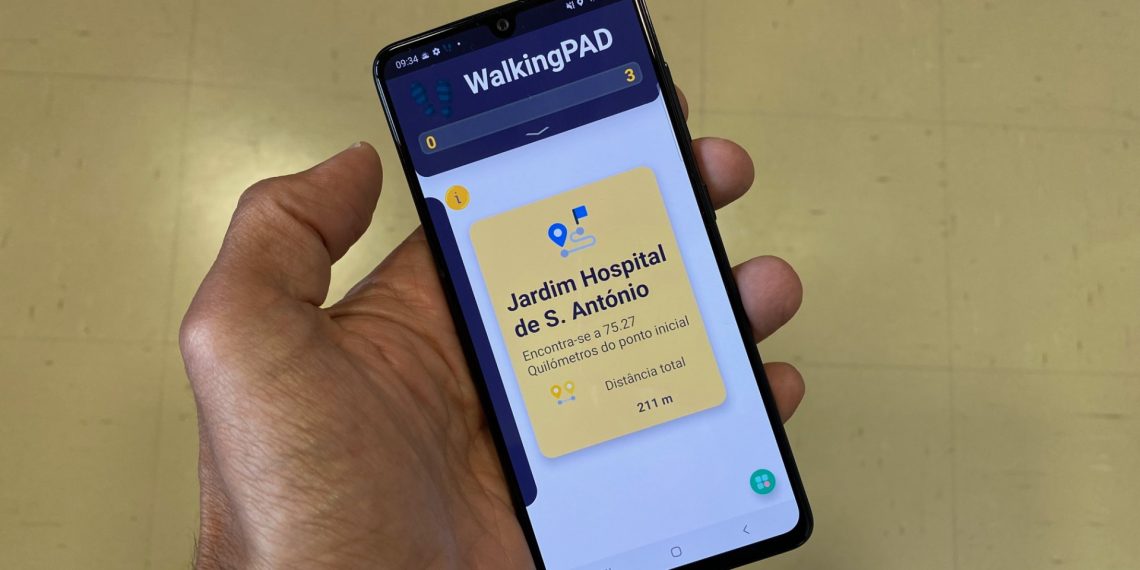The Angiology and Vascular Surgery (Porto University Hospital Centre) is developing, in partnership with INESC TEC and the Research Centre in Sports Sciences, Health Sciences and Human Development (CIDESD) of the University of Trás-os-Montes and Alto Douro (UTAD), the WalkingPAD project that aims to study and develop an outpatient exercise programme, focusing on the education and co-responsibility of patients with Peripheral Arterial Disease (PAD).
What is PAD?
Peripheral Arterial Disease (PAD) of lower limbs is a common cardiovascular disease that affects 27 million people in Europe and the United States. If not treated in a timely manner, it can ultimately lead to amputation of the lower limbs. In addition, this disease is also a potential factor for the increase in cardiovascular events, morbidity and mortality associated with other cardiovascular diseases, like those of cardiac and cerebrovascular diseases.

Despite being a chronic disease, there are effective treatments for PAD, focused on reducing and controlling the limitations caused by the symptoms. These actions involve the control of risk factors and a regular exercise routine (walking), perceived as first-line treatment among these patients. When performed successfully, it could lead reduce the number of patients in need of surgical treatment, the personal, socioeconomic, and hospitalisation costs, and associated morbidity and mortality.
The Walking PAD technology
The new WalkingPAD technology, accessible through a mobile application, and complemented with a web platform, integrates mobile technologies and geolocation systems, enabling the creation and monitoring of an individualised exercise plan for each patient, similar to hospital rehabilitation programmes.
“It is necessary to focus on preventing the progression of peripheral arterial disease, by investing in rehabilitation programmes. The main advantage of WalkingPAD over other programmes is its participatory nature and appealing exercises, since patients can perform them in family environment. They are highly personalised, effective, inexpensive and without significant risks, superior to those performed in hospitals”, said Ivone Silva, Vascular Surgeon at CHUP, associate professor at the Institute of Biomedical Sciences Abel Salazar (ICBAS), researcher at the Unit for Multidisciplinary Research in Biomedicine (UMIB).
The project aims to increase patients’ willingness to exercise, the average distance covered without pain (caused by muscle ischemia), and the overall physical and psychological well-being. In this sense, the project promotes the performance of personalised medicine within the community, by educating and motivating patients, through remote supervision; this solution is particularly interesting, since the patients can use it in their family environment.

Project uses artificial intelligence algorithms
“WalkingPAD prioritises advanced technologies, namely biometrics, thus enabling advances in terms of precision, cost, user-friendliness/willingness, protection of privacy, diagnosis and treatment, via smart monitoring, and a more comprehensive awareness of health/disease aspects. The use of artificial intelligence algorithms to determine patterns in PAD patients’ gait gives WalkingPAD the ability to recommend breaks, namely when limping pain intensifies, thus avoiding extreme situations”, stated Hugo Paredes, researcher at INESC TEC’s Centre for Information Systems and Computer Graphics, and professor at UTAD.
Catarina Abrantes, researcher at CIDESD and professor at UTAD pointed out that “the new technologies for capturing and processing continuous data enable personalised monitoring of the walking period in each exercise session, and in each week”.
This new therapeutic strategy, covering 120 patients at Porto University Hospital Centre (CHUP), shows significant potential for replicability, implementation and applicability in all patients with cardiovascular diseases, in addition to peripheral arterial disease. Thanks to WalkingPAD, physical exercise is prescribed as a key tool, in terms of not only intervention, but also considering the prevention of physical and/or mental illnesses.
The project is funded by the Foundation for Science and Technology (FCT), and co-financed by Norte2020.
The INESC TEC researcher mentioned in this news piece is associated with UTAD.




 News, current topics, curiosities and so much more about INESC TEC and its community!
News, current topics, curiosities and so much more about INESC TEC and its community!